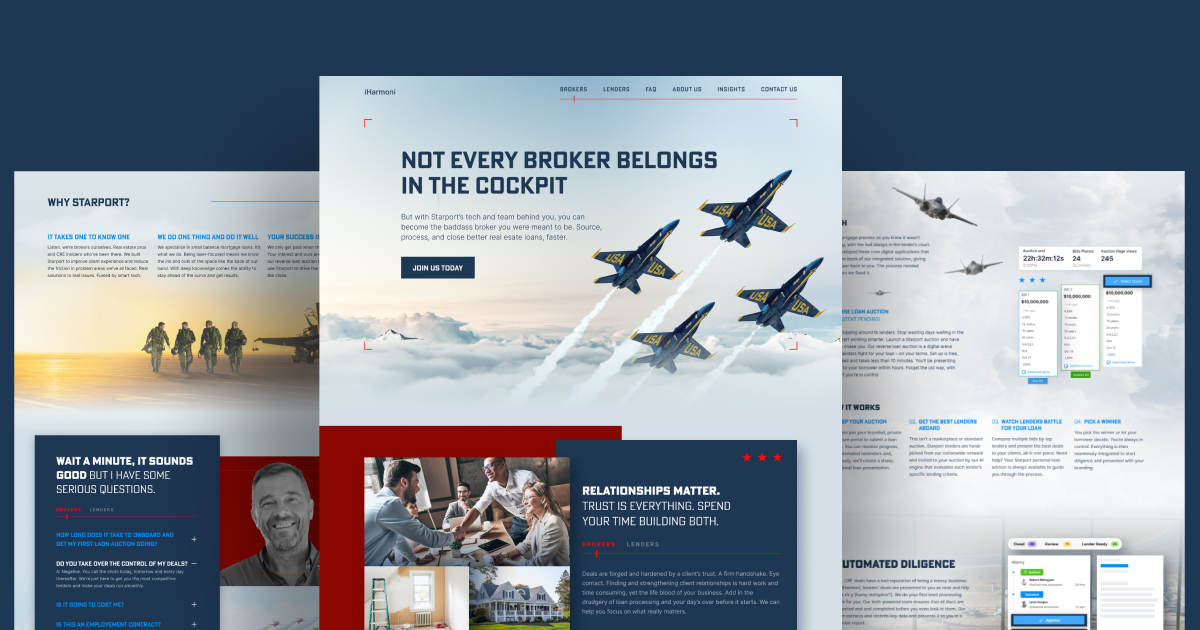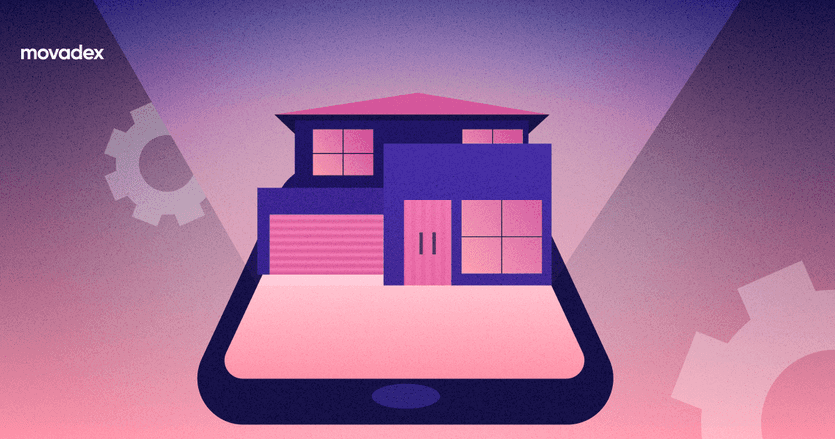As of 2023, Global Commercial Real Estate businesses have reached 7,258,349, marking a 1% increase from 2022. (source)
Despite concerns about a housing market crash akin to 2008, experts predict stability in 2023-2024 due to low affordability and high mortgage rates, countered by tight supply conditions.
The housing market remains competitive with demand outpacing supply. Prospective buyers, especially for new homes, are seizing limited inventory amid builder incentives. Also, by 2050, it's projected that 68% of the world's population will live in urban areas.
Hence, this sector has its upcoming trends. So, if you happen to own a real estate business, this article is specifically tailored for you.
Real Estate Software Trends 2024
Software technologies have seamlessly integrated into the real estate landscape. Take Zillow, for instance, a real estate marketplace offering users details on homes for sale or rent, along with tools for finding an agent, securing a mortgage, and more. Zillow employs cutting-edge software technologies such as AI, ML, and VR. Notably, their Zestimate tool utilizes AI and ML to forecast home values. Incidentally, AI and ML stand out as pivotal trends in this industry, topics I'll delve into further in this article.
Artificial Intelligence and Machine Learning
Think about how Netflix suggests shows you might like. Well, now it's not just about the entertainment industry – it's happening in real estate too. With things moving fast, ML tech helps out. ML algorithms prove invaluable in predicting your business's commission post each closed deal. Pattern recognition in ML aids in identifying when a property gains popularity. In essence, these algorithms pave the way for more favorable real estate deals.
As a software design and development company, we worked with a real estate client. Starport, an innovative platform, links borrowers, brokers, and lenders to help borrowers secure the best deals efficiently.
Our strategy included building a strong platform with reverse auctions, where lenders vie to provide the best terms, and smart matching algorithms linking borrowers with the right lenders for their needs. We integrated ML to streamline and optimize processes. This is just one instance of applying this ongoing trend in technology.

PropTech
PropTech (property technology) is the use of information technology to help people research, sell, buy, or manage property. It encompasses a wide range of applications, from online marketplaces and virtual tours to data analytics platforms and smart home automation systems.
PropTech is disrupting every aspect of the real estate journey, from the initial search and discovery to transaction management and ongoing property management. Online marketplaces like Zillow and Trulia have revolutionized property search, providing real-time access to listings, virtual tours, and comprehensive property information. Digital brokerages like Redfin and Compass have streamlined the transaction process, reducing paperwork, enhancing communication, and providing seamless online experiences. Smart home automation systems like Nest and Amazon Echo have transformed property management, enabling remote control of utilities and security.
In summary, the key elements of PropTech in real estate include:
- Data analytics platforms
- Virtual tours
- Smart home automation systems
- Online marketplaces
Blockchain
As our CEO said:
"You don't have to use it everywhere, but blockchain works well in certain situations.
For example, when you want to make sure data won't change, won't be tracked, and needs to be anonymous, decentralization is a great choice. Think about signing documents. With decentralization, anyone can check that all parties signed the document.”
This trend works in real estate too. For instance, using smart contracts on a blockchain means contracts can run by themselves, with no middlemen needed. This lowers the chance of fraud in real estate deals. Also, you can tokenize real estate assets on a blockchain. This means breaking up ownership into smaller parts, so investors can easily buy and sell shares in properties.
In summary, the key elements of blockchain in real estate include:
- Tokenization
- Identity Verification
- Smart Contracts
- Payment and Financing
Mobile Apps
The total revenue of the global app market in 2022 was estimated to be $431 billion. Advertising remains the primary source of app revenue, with an estimated $221 billion generated through this channel in 2022. (Source: Marketsplash). On average, a mobile application with 1 million users can generate around $10,000 per day.
It's not just about having a website; having a mobile application can also be advantageous. This way, people can browse houses and get in touch with realtors while on the go, such as during their commute to work. This represents an ideal solution for individuals looking to leverage digital technologies for their property requirements.
Internet Of Things
IoT might not be as trendy lately, but it's making a comeback.
The Internet of Things (IoT) refers to a network of physical objects, commonly known as "things," which are equipped with sensors, software, and various technologies. The functionality of IoT devices revolves around the collection and transmission of data to a central server or cloud. This data becomes instrumental in monitoring, analyzing, and optimizing the performance of the connected device. To illustrate, consider an IoT-enabled thermostat that gathers data on the temperature and humidity within a room, utilizing this information to make adjustments to the temperature settings accordingly.
IoT is revolutionizing how we interact with our devices. Businesses should look into how they can integrate IoT to improve operational efficiency or create new customer experiences. For example, smart home technology is rapidly growing, offering numerous possibilities for innovative applications.
In summary, the key elements of IoT in real estate include:
- Promote energy efficiency and cost savings for property owners by assisting in regulating heating and cooling systems.
- Allow remote access control or condition-based access by integrating with smart locks.
- Deliver a personalized and seamless experience for agents.
- Enable agents to respond promptly to inquiries by monitoring customer activity on the property.
- Issue automated notifications regarding maintenance issues or late payments.
Big Data Analytics
Big data analytics is the process of collecting, analyzing, and interpreting large and complex datasets to extract meaningful insights. How can it be useful in real estate?
- More accurate property valuations as big data analytics can be used to analyze historical sales data, comparable properties, and other factors to make more accurate predictions about the value of a property.
- Better risk management as it can be used to identify potential risks, such as defaults or foreclosure, and to take steps to mitigate them.
For example, Trulia uses big data analytics to provide insights into market trends, such as the average number of days a property is on the market.
Virtual Reality (VR)
VR technology allows potential buyers and renters to experience properties in an immersive and realistic way, without having to leave their homes. This can be a major advantage, as it can save people time and money, and allow them to see properties that they may not otherwise be able to visit.
There are a number of ways that VR is being used in real estate:
- Virtual property tours as potential buyers and renters can now take virtual tours of properties, as if they were actually walking through them.
- Virtual reality training as it is also being used to train real estate agents and brokers. This allows them to practice their interactions with potential buyers and renters in a safe and controlled environment.
By the way, we've implemented this technology in the SaaS industry. The iPad application, Flight Simulator, is used by real pilots to improve a variety of skills essential for successful flights. So, if you're thinking about incorporating VR training into your business, feel free to schedule a complimentary call with us.
Conclusion
Despite concerns about market stability, the integration of advanced technologies promises a resilient future for the industry. From the application of Artificial Intelligence and Machine Learning to the disruptive influence of PropTech and the transformative power of Blockchain, the real estate sector is poised for a digital revolution.
At Movadex, we understand the landscape of real estate technology. Our experience in implementing cutting-edge solutions, such as our work with Starport, showcases our commitment to driving innovation in the industry. As you navigate the evolving trends in real estate, consider the transformative potential of these technologies for your business. If you're prepared to develop your product but uncertain about the specific requirements, schedule a free call with me. We'll guide you through the process and tailor our expertise to meet your needs.
FAQ
Do real estate developers need a license?
In general, real estate developers do not need a license to develop properties. However, they may need to obtain a license if they are also acting as a real estate broker or agent.
What is the market size of the real estate software market?
In 2022, the global real estate software market was valued at approximately USD 10.54 billion. Predictions indicate it's set to expand to about USD 22.88 billion by 2030, expecting an annual growth rate of roughly 10.12% from 2023 to 2030. (Source)
How to perform custom real estate software development?
1. Research and Evaluate Development Options
Explore options like in-house development, outsourcing, or partnering with a software agency. Also, consider factors such as cost and expertise to make an informed decision. For example, you can look reviews on Clutch or TechBehemoths.
2. Choose the Right Technology Stack
Choose a tech stack aligning with your software needs, focusing on scalability, security, and compatibility. Seek expert advice for the best combination of languages, frameworks, and tools.
3. Design and Develop the Software
Go through a structured design phase, creating wireframes and prototypes. Use agile development for continuous feedback and iteration.
4. Testing and Deployment
Thoroughly test the software for functionality, performance, and security. Deploy it gradually after user acceptance testing to ensure it meets expectations.
5. Maintenance and Support
Establish a maintenance plan for bug fixes, enhancements, and adapting to changing business needs. Provide ongoing support for a smooth user experience.
Or Reach Out to a Software Development Agency
For a hassle-free custom real estate software development experience, partner with a reputable agency. At Movadex, we offer tailored custom software development services for real estate businesses. Our experienced team will guide you from requirements to deployment and ongoing support.




